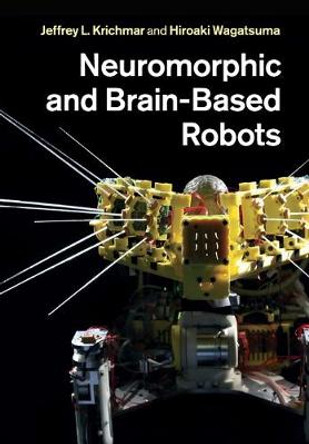Description
About the Author
Dr. Andreae obtained his PhD from Imperial College, London University in 1955. His research in Artificial Intelligence began at Standard Telecommunication Laboratories, Harlow, Essex, and he published a paper on his first learning machine, STeLLA, in 1963. In 1966 he moved from England to the Department of Electrical Engineering, University of Canterbury in Christchurch, NZ, where he continued his research and invented his second learning machine, PurrPuss, later shortened to PP. He has continued the research during retirement. Dr. Andreae has previously written two books on his research: Thinking with the Teachable Machine (Academic Press, 1977) and Associative Learning for a Robot Intelligence (Imperial College Press, 1998).
Reviews
"A bold and rich approach to one of the major challenges for neuroscience, robotics and philosophy. Who will take up Andreae's challenge and implement his model?" --Matthew Cobb, author of The Idea of the Brain and Professor of Zoology at the University of Manchester "Both Professor Daniel C. Dennett and Professor Michael A. Arbib independently likened the book 'An AGI Brain for a Robot' to Valentino Braitenberg's 1984 book 'Vehicles: Experiments in Synthetic Psychology'." Daniel C. Dennett, Professor of Philosophy and Director of Center for Cognitive Studies, Tufts University. Author of "From Bacteria to Bach and Back: The Evolution of Minds. Michael Arbib, a long time expert in brain modeling, observed that sometimes a small book can catch the interest of readers where a large book can overwhelm and turn them away. He noted, in particular, the success of Valentino Braitenberg's 'Vehicles' (for which he wrote the foreword). At a time of explosive interest in AI, he suggests that PP and its antics may be just the right way to ease a larger audience into thinking about the technicalities of creating general artificial intelligence." Michael A Arbib, Professor Emeritus of Computer Science, Biomedical Engineering, Biological Sciences and Psychology, University of Southern California. Author of "How the Brain Got Language. Robots seem to increasingly invade our lives, to the point that sometimes seems threatening and other-worldly. In this small book, John Andreae shows some of the basic principles of robotics in ways that are entertaining and easily understood, and touch on some of the basic questions of how the mind works." Michael C. Corballis, Professor of Psychology, University of Auckland. Author of "The Recursive Mind. A little book that punches far beyond its weight." Nicholas Humphrey, Emeritus Professor of Psychology, London School of Economics. Author of "Soul Dust: The Magic of Consciousness. A bold and rich approach to one of the major challenges for neuroscience, robotics and philosophy. Who will take up Andreae's challenge and implement his model?" Matthew Cobb, Professor of Zoology, University of Manchester. Author of "The Idea of the Brain". Here is a book that could change the direction of research into artificial general intelligence in a very productive and profitable way. It describes a radical new theory of the brain that goes some way towards answering many difficult questions concerning learning, planning, language, and even consciousness. Almost incredibly, the theory is operational, and expressed in a form that could-and should-inspire future, novel, research in AI that transcends existing paradigms." --Ian H. Witten, Professor of Computer Science, Waikato University. Author with Eibe Frank of "Data Mining: Practical Machine Learning Tools and Techniques"
Book Information
ISBN 9780323852548
Author John H. Andreae
Format Paperback
Page Count 134
Imprint Academic Press Inc
Publisher Elsevier Science & Technology
Weight(grams) 230g






